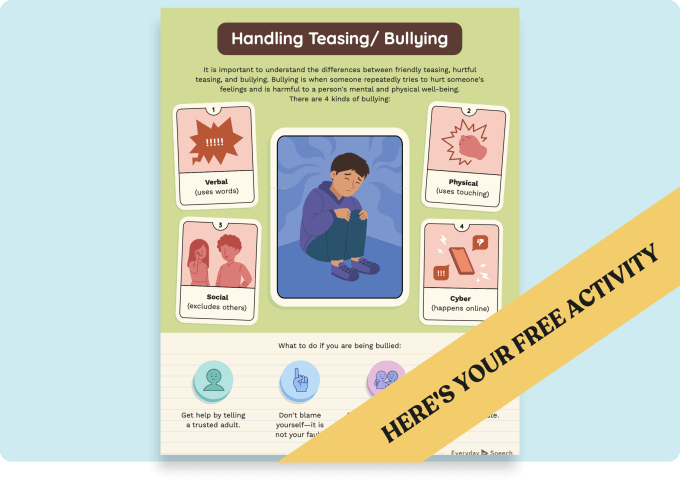Effective IEP Goals for Enhancing Communication in Relationships
Get free social skills materials
No-prep lessons on self-regulation, emotional recognition, conversation skills, and more.
Sign up hereDownload 50+ Example IEP Goals
Customizable library of strengths-based goals
Individualized Education Programs (IEPs) play a critical role in supporting students with special needs. Focusing on essential skills such as communication in relationships can greatly impact students’ learning, social interactions, and overall wellbeing. This blog post explores the significance of effective IEP goals in fostering healthy communication among high school students.
Understanding Communication in Relationships
Communication in relationships is a crucial skill that enables students to maintain healthy and happy relationships. It involves expressing oneself clearly, actively listening, and communicating positively. Developing strong communication skills can help prevent misunderstandings, reduce hurt feelings, and promote constructive interactions among peers.
The Role of Specialists
Different specialists can support students in developing communication skills in relationships:
- Speech-Language Pathologists: Assist in improving verbal and non-verbal communication, and enhancing active listening.
- Social Workers: Offer guidance in navigating social situations and fostering healthy relationships.
- Psychologists: Provide strategies for managing emotions and improving communication styles.
- School Counselors: Support students in developing interpersonal skills and setting relationship goals.
IEP Goals for Communication in Relationships
Here are some specific SMART IEP goals to enhance communication in relationships:
Goal 1: Improve active listening skills.
Strategies: Teach students to quiet their thoughts, avoid judgment, and maintain eye contact while listening.
Activities: Role-playing exercises and listening games.
Goal 2: Develop positive communication styles.
Strategies: Encourage students to express themselves positively and constructively.
Activities: Group discussions and guided practice in providing positive feedback.
Goal 3: Enhance clarity and politeness in communication.
Strategies: Teach students to communicate their needs clearly and politely.
Activities: Role-playing scenarios and practicing assertive communication techniques.
Implementing and Measuring Progress
To effectively implement these goals and measure progress, consider the following tips:
- Collaborate with specialists to develop tailored strategies and activities.
- Monitor and document students’ progress through regular evaluations and observations.
- Adjust goals and strategies as needed based on students’ growth and development.
Conclusion
By implementing effective IEP goals, educators can foster healthy communication in relationships among high school students with special needs. These goals not only support students’ social development but also contribute to their overall wellbeing. We encourage educators to apply these strategies and explore more resources at Everyday Speech Sample Materials.


